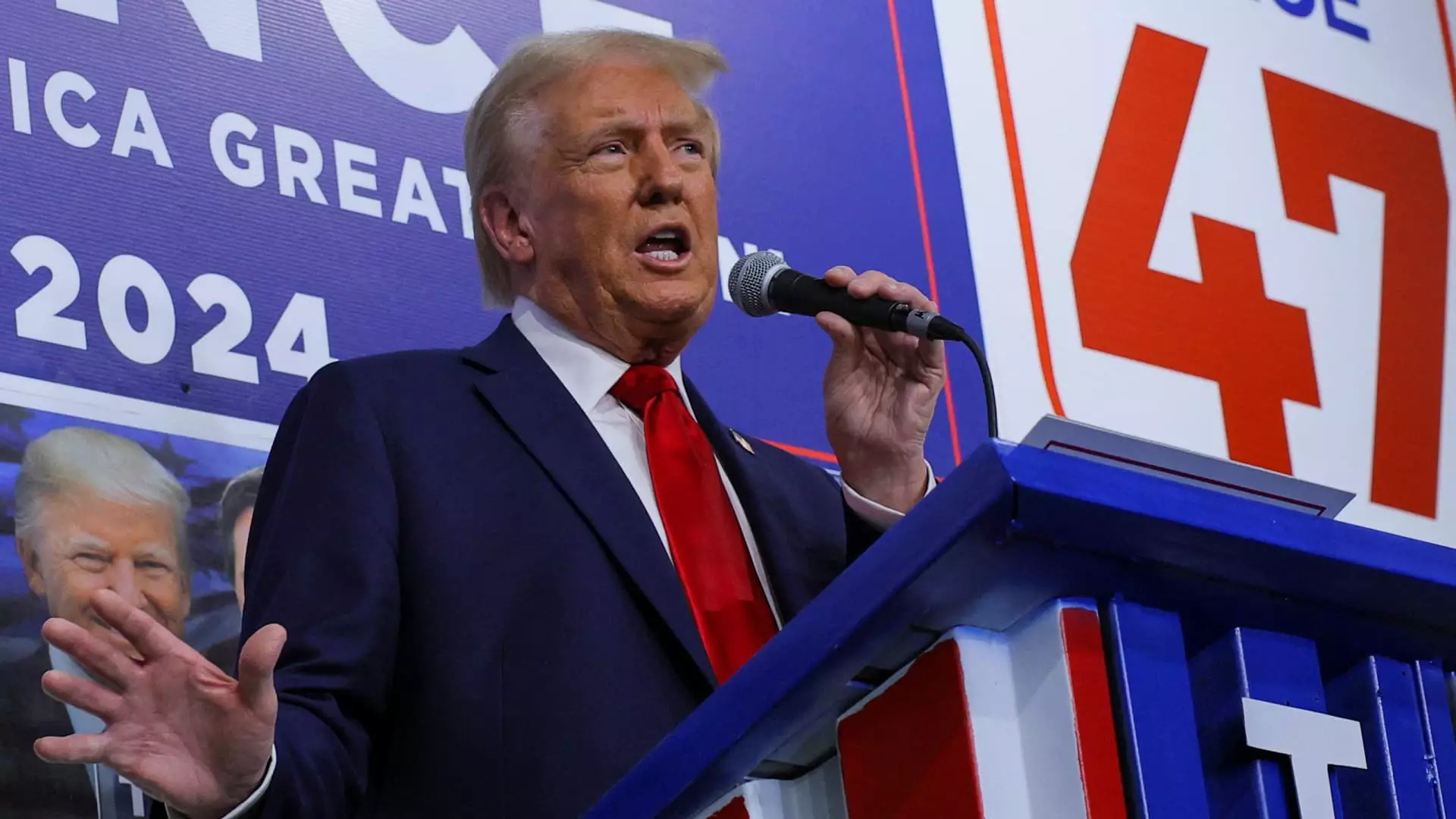In the current political climate, where economic policies can make or break a candidate’s prospects, understanding voter sentiment towards tariffs is vital. Recent polling data from NBC News indicates a significant portion of the electorate holds a dim view of candidates advocating for universal tariffs, particularly those as high as 20% on imported goods. The findings reveal that 44% of voters are less inclined to support such candidates, while only 35% are more likely to back them. This division highlights the contentious nature of tariff policies and their direct implications on a candidate’s appeal.
Tariffs, often seen as protective measures for domestic industries, can also carry a stigma among voters who fear the potential repercussions on consumer prices and economic stability. That near half of the respondents indicated they would be dissuaded by a proposed tariff suggests a broader anxiety toward trade policies that may disrupt the delicate balance of the economy. The divergence in opinion, with 19% unaffected by tariff discussions, underscores the nuanced perspectives within the electorate, which politicians must navigate carefully.
Former President Donald Trump’s advocacy for robust tariffs serves as a central pillar of his economic campaign. Despite the polling backlash, Trump remains resolute in his belief that higher tariffs will incentivize foreign companies to relocate to the United States, thereby fostering job creation and domestic investment. In a recent interview, he insisted that an “obnoxious” tariff framework would compel companies to produce within the country to avoid exorbitant costs associated with these duties.
Critics, however, question the efficacy of such a sweeping tariff approach. While aiming to stimulate domestic manufacturing, Trump’s proposal has been met with skepticism from economists and politicians alike. They argue that the burden of import taxes falls squarely on U.S. importers, potentially leading to higher prices for consumers. This concern is exacerbated by fears that a proliferation of tariffs could rekindle inflationary pressures that have only recently begun to ease. The call for a substantial tariff on imported goods, particularly the proposed 60% on Chinese imports, poses a serious risk of volatility in both consumer markets and international trade relations.
The Republican Party’s internal discord over tariff policies has become increasingly evident, with figures like Senate Minority Leader Mitch McConnell publicly expressing their opposition. McConnell’s stance illustrates a rift within the GOP, where traditional free-market sensibilities clash with populist sentiments championed by Trump. This divide not only complicates party unity but also complicates the party’s ability to present a coherent economic vision to voters.
The political implications are profound; as McConnell and others voice their critiques, they provide fertile ground for Democratic opponents. Vice President Kamala Harris has labeled Trump’s tariffs the “Trump sales tax,” effectively framing the candidate’s proposals in terms that resonate with voters concerned about economic burden and consumer pricing. This strategic counter-narrative enhances Harris’s position and underscores the potential pitfalls of hardline tariff policies for Republican candidates, particularly Trump.
The Biden administration’s trade policy contrasts sharply with Trump’s overarching tariff proposals, despite retaining some of the previous administration’s tariffs. By adopting a more targeted approach, as articulated by Treasury Secretary Janet Yellen, the Biden team aims to impose tariffs selectively in strategic sectors, thereby seeking to nurture specific industries while mitigating the broad economic repercussions associated with universal tariffs.
This nuance offers a more balanced stance that may resonate well with voters who are wary of blanket tariffs yet support measures to protect vital domestic industries. The strategy employed by the Biden administration poses a challenge to Trump’s rigorous approach, potentially providing voters with a more palatable option that emphasizes targeted assistance rather than sweeping tariffs that can provoke backlash and economic discomfort.
As the electoral landscape evolves, the contentious debate over tariffs illustrates the complexities of domestic economic policy. Voter sentiments reflect a blend of concerns regarding consumer protection, job creation, and inflationary risks. For candidates like Trump, who advocate for significant tariff measures, the challenge lies not only in convincing voters of the merit of their strategies but in addressing the inherent fears associated with such policies. As election cycles progress, the ongoing discourse surrounding tariffs will undoubtedly remain a pivotal issue for candidates across the political spectrum in shaping their economic platforms and garnering voter support.

Leave a Reply